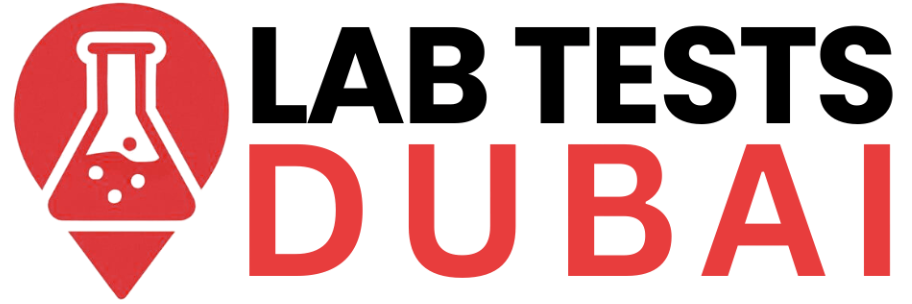
BCR-ABL Quantitative Test | Accurate Monitoring for Leukemia Detection
3.250,00 د.إ
The BCR/ABL – Quantitative test is a highly sensitive molecular diagnostic assay used to detect and quantify the BCR-ABL fusion gene, a key biomarker in chronic myeloid leukemia (CML) and some acute lymphoblastic leukemias (ALL). Utilizing real-time PCR technology, it provides precise measurement of BCR-ABL transcript levels, enabling accurate disease monitoring and treatment response assessment.
Sample Type : Whole Blood
Methodology : Real time PCR
TAT : 8-10 Days
Description
BCR/ABL – Quantitative Lab Test – Critical Monitoring for Leukemia Patients
The BCR/ABL Quantitative Test from Lab Tests Dubai is a high-precision molecular diagnostic testthat detects and measures the BCR-ABL fusion gene—a genetic abnormality caused by the Philadelphia chromosome, which is present in:
- Chronic Myeloid Leukemia (CML) – 95% of cases
- Philadelphia chromosome-positive Acute Lymphoblastic Leukemia (Ph+ ALL) – 20–30% of adult ALL cases
This fusion gene produces a tyrosine kinase protein that drives uncontrolled white blood cell production, leading to leukemia.
The quantitative aspect of this test is crucial—it doesn’t just detect the gene; it measures how much is present, allowing oncologists to:
- Confirm diagnosis
- Monitor response to targeted therapy (e.g., imatinib, dasatinib)
- Detect early signs of resistance or relapse
- Adjust treatment plans proactively
Using real-time PCR (Polymerase Chain Reaction) technology, this blood-based test delivers highly sensitive results, helping hematologists and oncologists track disease burden over time.
Available with home blood collection, Lab Tests Dubai ensures accurate, private, and stress-free testing—so you can stay on top of your cancer journey.
Why You Need This Test
If you’ve been diagnosed with CML or Ph+ ALL, this test is not optional—it’s essential for tracking your treatment success and ensuring long-term remission.
You need the BCR/ABL Quantitative Test if:
- You’ve been diagnosed with CML or Ph+ ALL
- You’re on tyrosine kinase inhibitors (TKIs) like imatinib, nilotinib, or ponatinib
- Your doctor is evaluating treatment response at 3, 6, 12 months
- You’re being assessed for treatment-free remission (TFR)
- You have rising WBC counts or new symptoms
This test helps:
- Confirm molecular response (e.g., MR4, MR4.5)
- Detect resistance early (before blood counts worsen)
- Guide therapy adjustments
- Reduce anxiety with objective data
Regular testing = better survival and quality of life.
Symptoms That Indicate This Test
While the BCR/ABL test is primarily used for monitoring, it may be ordered if you experience:
✅ For CML (Chronic Phase):
- Fatigue, weakness, or night sweats
- Unexplained weight loss
- Abdominal fullness (due to enlarged spleen)
- Easy bruising or bleeding
- Frequent infections
- High white blood cell count on CBC
✅ For Accelerated/Blast Phase:
- Fever without infection
- Bone pain
- Worsening anemia or low platelets
- Rapid disease progression
✅ For High-Risk Individuals:
- Abnormal blood counts on routine tests
- Family history of hematologic disorders (rare)
These signs may point to leukemia—and this test helps confirm and monitor it.
Natural Production: How the Philadelphia Chromosome Forms
The BCR-ABL fusion gene is not inherited—it’s an acquired genetic mutation that occurs in bone marrow cells.
It results from a translocation between chromosomes 9 and 22:
- Part of the ABL gene (chr 9) fuses with part of the BCR gene (chr 22)
- This creates the Philadelphia chromosome (Ph+) — the smallest chromosome
- The fusion gene produces BCR-ABL protein, a hyperactive tyrosine kinase that causes uncontrolled cell division
Key Facts:
- Not contagious or hereditary
- Cause unknown (not linked to lifestyle)
- Targeted by TKIs (tyrosine kinase inhibitors)
- Quantitative PCR measures transcript levels (e.g., IS %)
This test is the gold standard for monitoring molecular response in CML.
What Happens If Untreated? Risks of Ignoring BCR/ABL Levels
Ignoring BCR/ABL levels can lead to:
⚠️ Progression to Accelerated or Blast Phase CML – aggressive, hard-to-treat
⚠️ Treatment Resistance – due to new mutations (e.g., T315I)
⚠️ Relapse After Remission – without monitoring
⚠️ Reduced Survival Rates – in advanced phases
⚠️ Need for Chemotherapy or Stem Cell Transplant – if TKIs fail
The good news? CML is manageable with:
- Daily oral TKIs (imatinib, dasatinib, etc.)
- Regular BCR/ABL monitoring
- Potential for treatment-free remission (TFR) in deep responders
Early and consistent testing = long-term control and near-normal life expectancy.
How to Prepare for the Test
To ensure accurate results:
✅ No fasting required
✅ Continue your regular medications—especially your TKI
✅ Inform your doctor of:
- Current TKI and dosage
- Date of last dose
- Recent symptoms or infections
A whole blood sample in EDTA tube is collected via standard draw—available at our labs or via home collection.
Test Overview: Real-Time PCR Method
Report Includes:
- BCR/ABL % on International Scale (IS)
- Log reduction (e.g., 3-log = MR3)
- Molecular response level (e.g., MR4.5)
- Clinical interpretation for your oncologist
Note: Results are reported on the International Scale (IS) for global consistency.
Benefits of the BCR/ABL Quantitative Test
🔹 Precision Monitoring
Track disease at the molecular level.
🔹 Early Relapse Detection
Catch rising levels before clinical signs.
🔹 Guide Treatment Decisions
Support dose adjustments or switch to new TKIs.
🔹 Assess TFR Eligibility
Determine if you can safely stop medication.
🔹 Peace of Mind
Know your leukemia is under control.
If you’re living with CML or Ph+ ALL, the BCR/ABL Quantitative Test gives you the data you need in 8–10 days to stay ahead of your disease.





Reviews
There are no reviews yet.